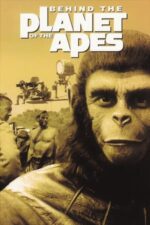Imagine diving into the mind of a legendary filmmaker like Werner Herzog or witnessing the evolving dynamics between mother and daughter through the lens of actress Charlotte Gainsbourg. What about tracing the historical trajectory of nudity in films, or uncovering the complex life behind an iconic artist like Maria Callas? These fascinating journeys are all possible thanks to the wealth of film archives available today.
Film archives serve as treasure troves for cinephiles and scholars alike, preserving a rich tapestry of cinematic history that would otherwise be lost to time. They house rare footage, unpublished memoirs, interviews, photographs, and other artifacts that offer invaluable insights into the creative processes and personal lives of filmmakers and actors. These archives also chronicle the evolution of cinema itself, reflecting societal shifts and cultural norms through the decades.
Let's take Werner Herzog - Radikaler Träumer as an example. This compelling documentary not only offers a behind-the-scenes look at Herzog's illustrious career but also reveals the passion that fuels his artistic vision. Through interviews with esteemed collaborators and exclusive archive material, we gain a deeper understanding of what drives this iconoclast to persist in an ever-changing industry. It's a testament to the power of film archives as vehicles for storytelling, allowing us to delve into the lives and minds of cinema's most influential figures.
Similarly, Jane by Charlotte offers a deeply personal exploration of mother-daughter dynamics through the lens of actress Charlotte Gainsbourg and her legendary mother, Jane Birkin. By sharing their inner worlds with each other through intimate conversations and rare archive footage, they create space for a genuine connection that transcends traditional familial roles. This emotionally charged film demonstrates how film archives can serve as catalysts for self-discovery and healing, enabling us to revisit past relationships with fresh perspectives.
Other films, like Skin: A History of Nudity in the Movies or Hitler: A Career, use archival materials to shed light on broader societal issues. The former traces the historical trajectory of nude images in cinema while examining its political and sociological implications, highlighting shifts in moral standards over time. In doing so, it invites us to reflect upon our collective progress - and remaining challenges - regarding gender equality and representation. Meanwhile, the latter delves into the rise of Adolf Hitler and the psychology of mass manipulation, offering profound insights into human nature and societal influences.
Ultimately, film archives are more than mere repositories for cinematic history; they're vital tools for fostering understanding, empathy, and critical thinking. Through their rich tapestry of visuals and narratives, these archives allow us to traverse time and space, gaining fresh perspectives on familiar stories or unearthing hidden gems from the annals of film history.
As we continue to navigate the ever-evolving landscape of cinema, let's remain grateful for these invaluable resources - and committed to preserving them for future generations of film lovers.




























